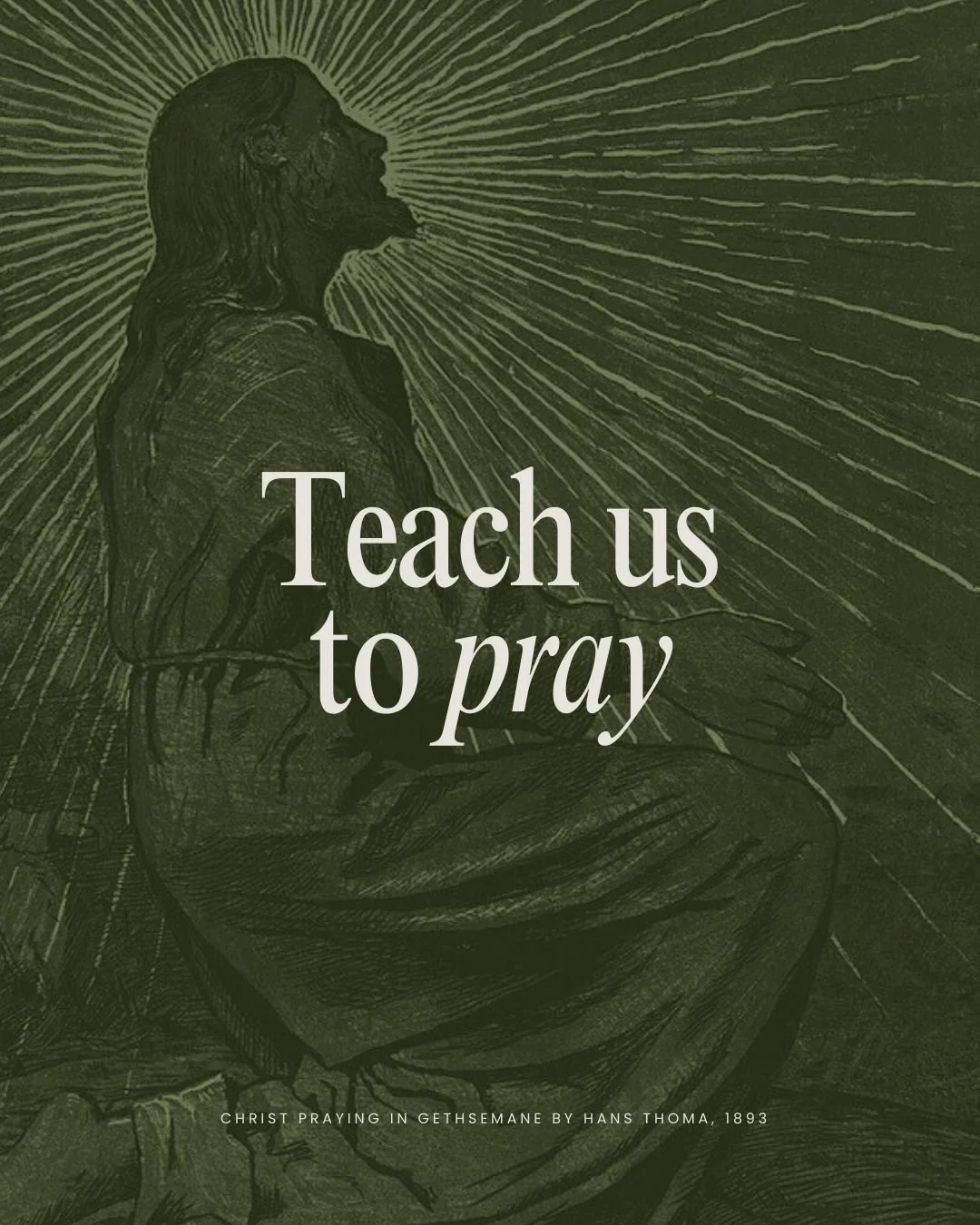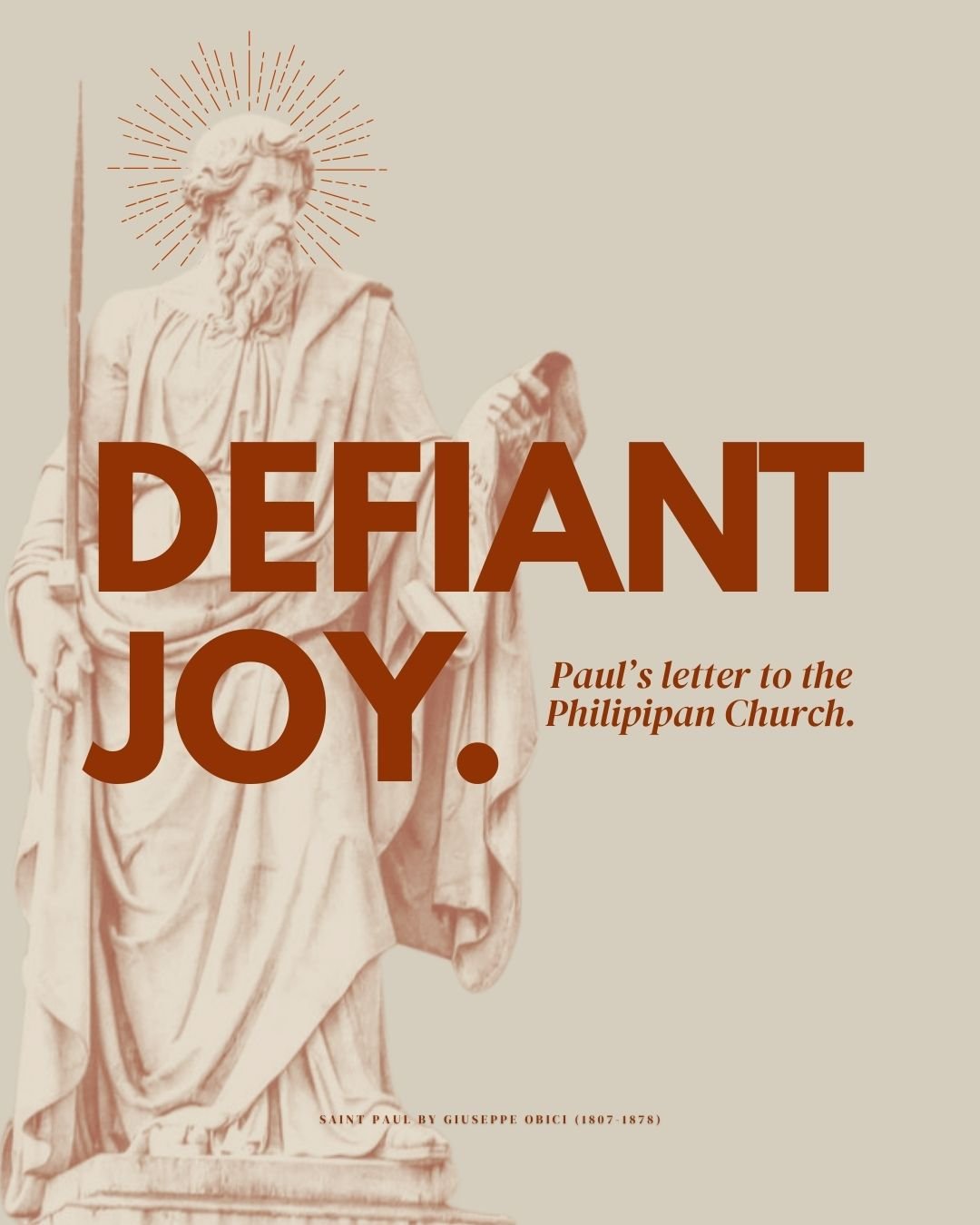Teaching
We gather around the scriptures to learn the unfolding story of God.

Prayers of Contemplation — 1 Kings 19:9-13
In a world filled with constant noise, distraction, and internal pressure to stay busy, learning to listen can feel unfamiliar and uncomfortable. In Elijah’s story on Mount Horeb, God does not meet him in the wind, earthquake, or fire, but in the sound of sheer silence—a gentle reminder that God often speaks most clearly in stillness. Like Elijah, our own fears and inner narratives can grow so loud that we struggle to recognize God’s voice, even when He is near. Prayers of contemplation invite us to slow down, quiet the noise, and rediscover the reality that God is always speaking, gently calling us to rest, attend, and listen.

Prayers of Persistence — Luke 11:1-13
In a culture that often treats prayer as a transaction, Jesus invites us into something deeper: persistent prayer as a way of life. Drawing from Luke 11, scripture reframes persistence not as wearing God down, but as remaining with a loving Father who eagerly gives the Holy Spirit to his children. Persistent prayer is less about controlling outcomes and more about growing in intimacy, surrender, and attentiveness to God’s presence. As we keep asking, seeking, and knocking, we are formed into people who know God, trust his goodness, and live attuned to the Spirit.

A Community Reflection on Minnesota — Leviticus 19:33-34
In response to recent events in Minneapolis, we as a church consider what faithful Christian witness looks like in moments of fear, violence, and public unrest. Drawing from Scripture’s consistent call to love the foreigner, honor the image of God in every person, and resist evil with good, we explore the Christian’s relationship to the state and the limits of political authority under God. Rather than offering policy prescriptions, we are called to courage shaped by Jesus—loving neighbors without exception, naming injustice with humility, and engaging the world through prayer, discernment, and suffering love.

Prayers of Thanksgiving — Luke 17:11-19
We often confuse gratitude with positivity, treating thanksgiving as something to perform rather than a way of truthfully relating to God. In Luke 17, Jesus meets ten men in their suffering, and one returns in thanksgiving—not because everything is resolved, but because he recognizes who Jesus is. This return reveals that thanksgiving is more than acknowledgment of a gift; it is worship that trusts God’s presence even while healing is still unfolding. The invitation is not to deny pain, but to practice a gratitude that returns to God, holds suffering honestly, and receives the deeper wholeness Christ offers.

Prayers of Intercession — Romans 8:22–27
In a culture that is deeply spiritual but often wary of organized religion, we recognize that prayer can easily become detached from real presence and action. Drawing on Paul’s letter to the Romans in Chapter 8, we are invited to see intercessory prayer as more than words—it is a way of standing with others in their pain and bringing that pain before God. We see this calling fulfilled in Jesus Christ, the true mediator who intercedes for us and restores humanity’s original vocation.

Teach Us to Pray — Luke 11:1-4
In a season where prayer often feels confusing, disappointing, or out of reach, the disciples’ simple request—“Lord, teach us to pray”—remains our own. Jesus responds not with performance or perfection, but with an invitation into trust, presence, and relationship, addressing the barriers of disappointment, distraction, and discipline that so often shape our prayer lives. Through the Lord’s Prayer, we learn that prayer is both structured and flexible, honest and hopeful, rooted in God’s care for our daily needs and His desire to set the world right.

Love — Matthew 1:18-25
In a world marked by overwhelming suffering and compassion fatigue, it is easy to respond to pain with apathy and distance. In Matthew 1, Advent reveals a different way as God’s agape love draws near through Joseph’s obedient protection, Mary’s faithful surrender, and Jesus’ vulnerable presence as Immanuel. Rather than remaining distant, God enters human suffering fully, inviting us to resist indifference and embody a love that protects, trusts, and stays close to those within our reach.

Joy – Luke 2:8-20
In an age marked by constant anxiety and fear, Scripture invites us to consider a different response: joy. In Luke’s account of the shepherds, God enters a fearful, politically unstable world not from a distance, but from within it, announcing good news to the marginalized and afraid. This joy is not fragile happiness, but a deep, enduring gift anchored in God’s presence that casts out fear and sustains us through hardship. As those created in God’s image, we are invited to embody this joy through worship and creative participation, bearing witness to Immanuel, God with us, in a weary world.

Peace – Matthew 3:1-12
In a season often reduced to cozy nostalgia and sentimental visions of peace, we can forget that the peace of Christ is far deeper and far more disruptive. John the Baptist’s unsettling witness reminds us that Christ’s peace exposes what is broken in us, confronts what is unjust in the world, and calls us into real, costly repentance. True peace is not a mood but a transformation—God reshaping our minds, desires, and loyalties so that we might participate in His coming kingdom.

Hope – Isaiah 9:2-9
What do we do when the world feels increasingly heavy, anxious, and bleak? In this Advent message, we explore our deep human longing for hope amid fear, doom-scrolling, and the relentless stream of bad news. Drawing from Isaiah’s prophecies, we trace Israel’s history of failed leaders and unmet expectations, revealing how the ache for rescue has always been part of the human story. Ultimately, we look to the surprising and upside-down hope of Jesus—the promised King who comes not with political power, but in humility, vulnerability, and sacrificial love.

The Jesus Community – Colossians 3:11–15
Oftentimes we treat the modern church like a product to be consumed rather than a community to belong to. In Colossians 3, Paul calls the church to remember who it is: God’s unified family, chosen and dearly loved. This identity invites us to set aside the divisions we carry in from the world, to clothe ourselves in compassion, humility, and forgiveness, and to practice a love that binds us together in perfect unity. The invitation is not mere attendance, but shared commitment—a community formed by Christ’s grace and devoted to one another’s good.

Defiant Generosity – Philippians 4:14–23
What do we do when the needs around us feel too overwhelming to make a difference? In this final message from our Defiant Joy series in Philippians, we explore how cynicism, fear, and scarcity can shrink our capacity to live generously. Drawing from Paul’s gratitude to the Philippian church, we consider how generosity is not only about meeting practical needs but about the inner transformation that happens as we loosen our grip on time, money, and comfort. Through Scripture, cultural reflection, and honest confession, we’re invited to rediscover the freedom that comes from trusting in God’s abundance.

Learning Contentment – Philippians 4:10–13
Contentment is one of the most misunderstood yet deeply desired qualities in life. We often hear Paul’s words in Philippians 4:13—“I can do all things through Christ who strengthens me”—and mistake them for a motivational slogan or spiritual pep talk. But Paul’s understanding of contentment and strength is far richer. Writing from prison, he expresses gratitude not for what he has received, but for what generosity is producing in others. His contentment is not rooted in self-sufficiency or independence, but in a radical dependence on Christ.

Honest Confessions — Philippians 4:1–9
Hypocrisy is a universal part of the human condition—a gap between who we are and who we aspire to be. Rather than denying or being discouraged by our inconsistencies, we are invited to face them with honesty and humility, striving to close the gap through growth and grace. In Philippians, Paul offers practical guidance for how this can take shape, particularly in areas where hypocrisy often appears: conflict, anxiety, and virtue.

The Politics of Jesus – Philippians 3:17–21
In a world that demands our loyalty in many directions—nation, party, ideology—Paul insists that Christ alone is Lord. Every other identity or allegiance is secondary, and our unity as followers of Jesus must transcend political divides. This challenges us to examine where our true loyalty lies and to resist the temptation to elevate any earthly power to the place of Christ.

We Press On – Philippians 3:12–16
Spiritual complacency often creeps in unnoticed, disguising itself as contentment or routine. It can cause us to settle for a stagnant faith, where we go through the motions without truly engaging with God. True growth requires us to recognize and resist this inertia, choosing instead to pursue Christ with renewed intentionality and passion. The journey of faith is ongoing, not a destination we reach once and for all.

Is Jesus Worth it? – Philippians 3:7–11
In a world overflowing with options for meaning and identity, the question naturally arises: is Jesus worth it? Paul’s answer is an unqualified yes. He has lost much—status, friends, perhaps even family—but he insists that nothing compares to the joy and significance of knowing Christ. This “knowing” is not mere intellectual assent, but a deep, relational friendship with Jesus, an invitation into the very love of the Trinity. To know Christ is to be loved as you are, to find your true significance as God’s beloved.

The Mindset of Christ – Philippians 2:19–30
The desire for legacy is universal; we all want our lives to matter, to leave a mark that outlasts us. But our culture often pushes us toward building our own brand, maximizing comfort, and seeking recognition. Epaphroditus’ story challenges this narrative. He didn’t live to be known—he lived to be faithful. His legacy is not in fame or achievement, but in his Christ-like posture of humility, obedience, and self-giving love. Paul urges us to see in Epaphroditus a concrete example of what it means to adopt the mindset of Christ: to risk more, to reflect more, and to do more things that will live on beyond us.

Becoming Blameless – Philippians 2:14–18
In a world where negativity dominates headlines, it’s easy to think things are only getting worse. Yet broader trends—declining poverty, rising productivity, and a greener planet show reasons for hope. Still, our hearts often default to grumbling in the face of suffering, much like the Israelites in the wilderness who, despite God’s miracles, chose doubt and complaint over trust. Paul’s letter to the Philippians contrasts this response with living blamelessly as children of God, reminding us that bitterness is not just a reaction but a choice to overlook God’s goodness and provision.

Becoming like Jesus – Philippians 2:12–13
Spiritual formation is not about mastering our own fate or striving for perfection, but about surrendering control and allowing God to do His slow, patient work in us. Sometimes change is dramatic, but more often it is gradual, as God gently heals, corrects, and cultivates Christlike character in us over a lifetime. Our practices create openings for God’s grace, but it is He who transforms us from the inside out.

